Since becoming a member of the CMHA UK, the team at Lloyds Banking Group have found the opportunities for sharing knowledge and learning with similar organisations across the CMHA, to be particularly valuable. Head of Global Transaction Banking, Commercial Banking, Ed Thurman, reflects on this, and how looking after employee mental health has had to adapt during the covid-19 pandemic.
“As an organisation, we’ve been pretty switched on to mental health as part of wellbeing for a number of years now. The tone is very much set from the top; by our Chief Executive and his experiences, and that’s given us real licence to explore it as a priority. We see it as critical to our people proposition.
“The CMHA is a really, important asset in this. It allows us to bring in new perspectives, to understand good practices, to compare notes and to have really open discussions with similar organisations. I’m the Executive Sponsor for mental health within the Commercial Banking division, and responsible for London as a region for the Group. The CMHA has really helped me think about my work in that area, and to share knowledge around how we get this topic to really resonate with our teams.”
So, how do you still manage to show care for individuals when you’re working at distance?
“It’s about very open, authentic communication from the leadership team. While things are still evolving with the pandemic, the uncertainty and the economic impact on individuals and families means it’s quite easy to talk yourself into quite a dark place. We have to create environments where people have the opportunity to engage with their anxiety, but it doesn’t escalate unhealthily. So, as leaders, where we know what we’re going to do, we’re clear around that. Where we don’t know how things are going to pan out, we’re open about that too, while clearly explaining how we’re actively managing situations.
“In terms of putting processes in place, informed by the CMHA, we’ve flexed the structures and approaches we had in place for mental health. For instance, we’ve moved really quickly to put additional support in place to help our teams dealing with distressed clients. We’ve had clients that have been in business for decades and suddenly their business has disappeared. Our people are supporting them, on a personal level too. It has been very different to what a banker would be doing in a normal environment.
“At a really human level, we’re encouraging teams to stay really close, for colleagues to look out for each other. If you haven’t heard from someone for a few days, just check in, drop them a note.
“It’s added a different dimension to our business, because we all know one another now in a very different way than we did before the pandemic. Everybody knows what my kitchen looks like and I know what people’s attics look like and so on. We’re really conscious that for a long time every dimension of everybody’s lives has been upside down. People need someone to talk about all that. It’s about the individual as much as it is about the banking professional.”
What about the ‘new normal’ would you like to see remain beyond the crisis?
“I think there is a real opportunity to reassess and get the optimal mix in terms of ways of working. I think we’ve started to understand where the real value is in terms of interactions. How do we really think about relationships, whether with our teammates or clients. What are the things that really matter?
“We’ve also learned how to get to issues really quickly. A lot of the kind of corporates dances that we used to do, by necessity were stripped away, and I think we’ve got to be really thoughtful about not allowing them to creep back where they don’t add value. There’s been an authenticity in the way we’ve engaged with our clients and colleagues and I’d like to think we can hang on to it.
“I think everything we’ve experienced in the pandemic has reinforced that mental health as a part of wellbeing is a critical part of how we function as an organisation. I’m really pleased and proud of the way we’ve responded.”





.jpg)